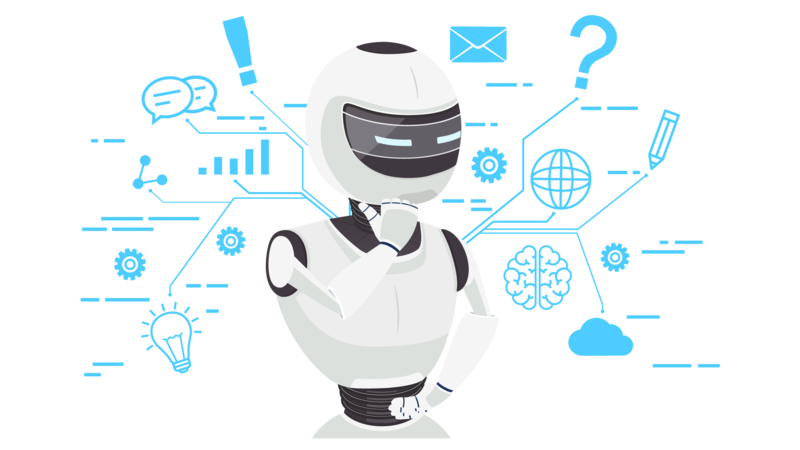Someone immersed in a context of business activities, surely has heard of Artificial Intelligence (AI). A concept that has been gaining popularity and applicability within the corporate dynamic, especially in recent years.
With the evolution of technology, AI is increasingly highly effective when the goal is to automate tasks considered bureaucratic. This technology deepens the knowledge of managers and leaders about the business, optimizes the company’s relationship with its customers and with the market.
Furthermore, AI is, today, the shortest path between gathering information and generating ideas. This is because their intelligence, added to the data processing capacity, is all that companies need to better analyze information, generate more responses and make better decisions.
Here we list 6 Artificial Intelligence applications:
1. Chatbots for attention
Chatbots increasingly assume the position of human assistants, energizing the important task of attending and offering support to users of the most varied services.
Based on AI, chatbots manage to direct attention according to user demand, looking for the most appropriate and agile solution, without necessarily having to resort to a human.
2. Customer retention tool
Today, one of the great challenges for companies is to build customer loyalty. However, maintaining a consistent consumer base requires a lot from managers. The good news is that Artificial Intelligence can help a lot in that regard.
Based on modern machine learning concepts, algorithms and many calculations, some softwares are able to analyze data from the company’s sales history and, from that, accurately trace their clients’ profile, indicating points of attention.
The objective of the tool is to find the customer’s purchase pattern and learn to adapt to behavioral changes, autonomously deciding whether or not the customer is at risk of the famous “Churn” (customer cancellation rate).
3. Applications to understand consumer behavior
Given the competitiveness of the market, it is necessary to plan actions and move forward in the search for consumer preference. In this sense, Artificial Intelligence is also efficient.
4. Definition of prices based on strategic data
Artificial Intelligence is also present when putting prices on common services of our day to day, an example of what happens with transport applications. In these services, the intelligent algorithms are capable of changing the price of a run based on different variables, such as origin and destination of the trip, time, distance and demand, all in a completely autonomous way.
A similar situation occurs in Internet purchases, in which the previous research data shows the level of consumer interest in a product, which, in many cases, causes its prices to be altered.
5. Process control and business management
Establishing good inventory control is one of the main challenges faced by commerce. As the mix of products offered is usually large, in many cases, it is quite difficult to measure the availability levels of all products, precisely aligning them with the levels of consumer demand.
Fortunately, Artificial Intelligence, together with an ERP (Enterprise Resource System) system, is a great business ally when the issue is stock management.
6. Recruitment and selection of employees
Who would say that one day Artificial Intelligence would be able to help in a task as complex and subjective as the recruitment of collaborators? However, today, technological solutions are already used for this purpose. From candidate databases, recruitment services can select the professionals most aligned to the profile desired by the company. This not only shortens the selection time, but also reduces the HR work with unproductive contacts, interviews and evaluations, increasing the precision of the selection.
Finally, there is no doubt that Artificial Intelligence is a concept of extreme value for the businesses of the present and, especially, for the businesses of the future. This is because this is a trend that is at the beginning, but that has great potential for growth and application in the most varied processes. This short list that we present is only a fraction of what is to come.
